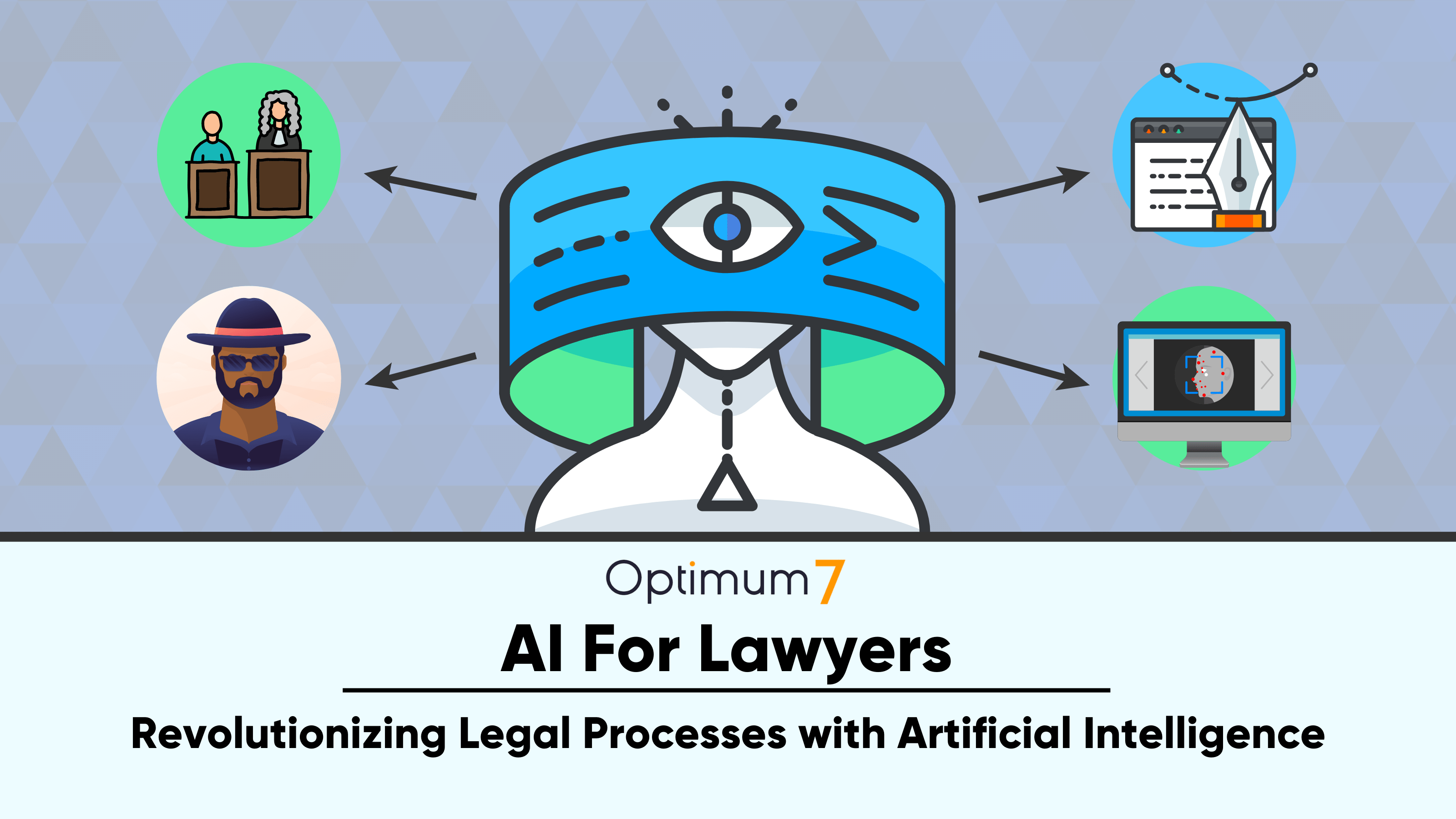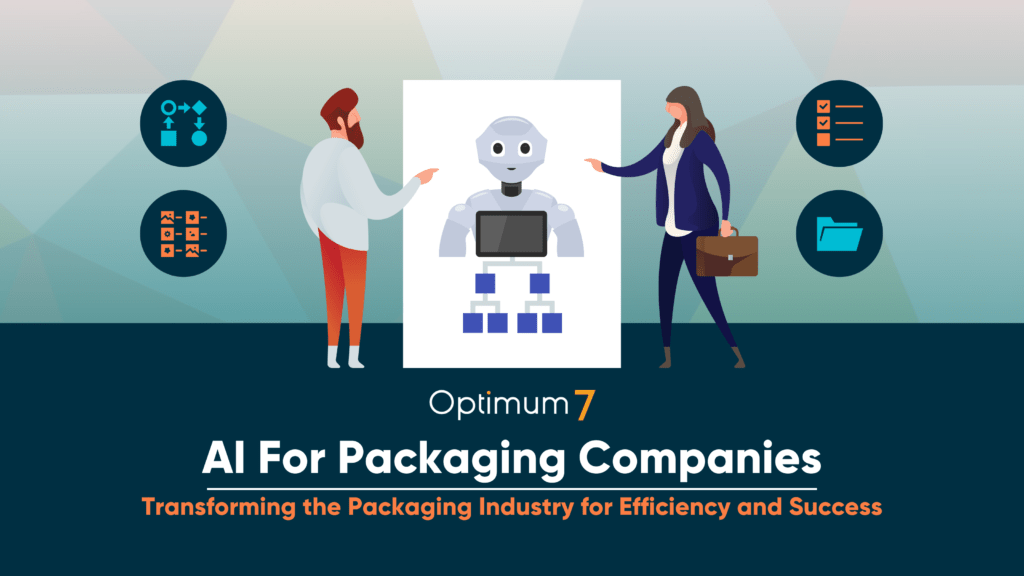Technology has revolutionized every industry, and the legal field is no exception. Lawyers can now use artificial intelligence (AI) to streamline their work and enhance their legal services. AI technologies can assist lawyers in legal research, contract analysis, and dispute resolution, among other areas. In this article, we’ll explore how AI is transforming the legal industry and the various applications of this technology, along with the ethical and regulatory challenges associated with its use.
Understanding the Role of AI in the Legal Industry
Artificial intelligence is a field of computer science that focuses on creating machines that can perform tasks that would require human intelligence, such as decision-making, problem-solving, and understanding natural language. AI has many practical applications in the legal industry because it can help lawyers simplify their work and provide more efficient, accurate, and cost-effective legal services.
In recent years, AI has been a hot topic in the legal industry, with many law firms and legal departments exploring the use of AI to improve their services. AI can be used to automate routine tasks, such as document review and contract analysis, freeing up lawyers to focus on more complex and high-value work. Additionally, AI can help lawyers make better decisions by providing them with insights and predictions based on data analysis.
The Evolution of AI in Law
The use of AI in law has been evolving rapidly since the first AI-based legal expert system, MYCIN, was developed in the 1970s. MYCIN was designed to help diagnose and treat infections and demonstrated that AI could be used to solve complex problems in medicine. Since then, AI technologies have become more sophisticated and affordable, enabling lawyers to incorporate them into their legal work.
Today, AI is being used in a wide range of legal applications, from contract analysis and due diligence to e-discovery and legal research. AI can help lawyers identify relevant case law and statutes more quickly and accurately than traditional research methods, saving time and reducing the risk of missing important information. Additionally, AI can help lawyers analyze large data sets, such as financial records and email communications, to identify patterns and trends that may be relevant to a case.
Key AI Technologies Used in Legal Practice
AI technologies that are commonly used in legal practice include natural language processing (NLP), machine learning, and predictive analytics. NLP is used to analyze and decode legal documents, contracts, and case law, while machine learning is used to identify patterns and trends in large data sets. Predictive analytics is used to forecast legal outcomes and help lawyers make more informed decisions.
One example of the use of AI in legal practice is the development of chatbots that can answer common legal questions and provide legal advice to clients. Chatbots use NLP to understand the client’s question and provide a relevant response, allowing law firms to provide 24/7 support to their clients without the need for human intervention.
Another example is the use of AI in contract analysis. AI can be used to analyze contracts and identify potential risks and issues, such as unclear language or conflicting terms. This can help lawyers negotiate better terms and reduce the risk of disputes.
In conclusion, AI is transforming the legal industry by providing lawyers with new tools and technologies to simplify their work and provide more efficient, accurate, and cost-effective legal services. As AI continues to evolve and become more sophisticated, it is likely that we will see even more innovative applications of AI in the legal industry.
AI Applications in Legal Research
Legal research is a fundamental part of legal practice, and AI can assist lawyers in simplifying and streamlining this process. With the help of AI, lawyers can now access legal information and insights faster and more efficiently than ever before. Here are some of the ways AI is being used in legal research:
Natural Language Processing for Legal Documents
NLP technology can analyze and decode complex legal documents, including contracts, case law, and statutes. This enables lawyers to easily navigate and understand the legal language, saving them time and effort. With the help of NLP, lawyers can quickly identify the key provisions of a contract or statute, and better understand how they apply to a particular case.
For example, NLP can help lawyers identify the governing law in a contract, determine the intent of a specific provision, or even identify potential ambiguities or inconsistencies in a legal document. By automating these tasks, NLP can help lawyers save time and reduce the risk of errors.
Predictive Analytics in Case Outcomes
Predictive analytics technology can forecast the likelihood of case outcomes based on past cases and identify patterns and trends that can help lawyers build stronger cases. With the help of predictive analytics, lawyers can now analyze vast amounts of legal data to identify key factors that can influence case outcomes.
For example, predictive analytics can help lawyers identify the most important legal precedents, determine the likelihood of success in a particular jurisdiction, or even predict the behavior of a particular judge or jury. By leveraging these insights, lawyers can build stronger cases and make more informed decisions about how to proceed.
Automating Legal Research Tasks
AI-based tools can automate legal research tasks, such as document review and eDiscovery, freeing up lawyers to focus on more complex legal work. With the help of AI, lawyers can now review and analyze vast amounts of legal data in a fraction of the time it would take to do so manually.
For example, AI can help lawyers quickly identify relevant documents in a large dataset, categorize them by topic or relevance, and even extract key information from those documents. By automating these tasks, lawyers can save time and reduce the risk of errors, while also freeing up valuable time to focus on more complex legal work.
Overall, AI is transforming the legal research process, enabling lawyers to access legal information and insights faster and more efficiently than ever before. By leveraging the power of NLP, predictive analytics, and automation, lawyers can build stronger cases, make more informed decisions, and ultimately deliver better outcomes for their clients.
AI-Powered Contract Analysis and Drafting
An important part of legal practice is contract analysis and drafting, and AI can enhance this process in various ways.
When it comes to contract analysis, AI can help lawyers review contracts and identify potential risks and issues. For instance, contract analysis tools can identify clauses that may require further negotiation or revision, and AI-powered risk assessment tools can calculate the likelihood and impact of future risks. This not only saves time, but it also ensures that contracts are more thorough and accurate.
AI can also assist in the drafting of contracts. AI-based contract drafting tools can speed up the drafting process and ensure that contracts conform to legal standards and best practices. These tools can also automate repetitive tasks, such as filling in standard clauses and forms, freeing up lawyers to focus on more creative work. Additionally, AI can offer suggestions for alternative language and clauses based on similar contracts and legal precedents.
Another way AI can streamline the contract process is through contract management. AI-powered contract management tools can automate contract renewal, termination, and other tasks, providing a more efficient and cost-effective way to manage contracts. These tools can also track important dates and deadlines, reducing the risk of missed deadlines and costly mistakes.
Overall, AI can greatly enhance the contract analysis and drafting process, making it more efficient, accurate, and cost-effective. As AI technology continues to advance, it will undoubtedly play an even greater role in the legal industry.
AI in Litigation and Dispute Resolution
Artificial intelligence (AI) has revolutionized many industries, and the legal field is no exception. In recent years, AI has been used in litigation and dispute resolution, enabling lawyers to provide more accurate and efficient legal services.
AI-based tools can automate many of the time-consuming and tedious tasks involved in legal work, freeing up lawyers to focus on more complex and strategic work. Let’s take a closer look at some of the ways AI is being used in litigation and dispute resolution.
E-Discovery and Document Review
One of the most significant challenges in litigation is the sheer volume of documents that must be reviewed and analyzed. AI-based eDiscovery and document review tools can automate the process of reviewing and organizing large volumes of documents, making it easier for lawyers to identify relevant information and build stronger cases.
These tools can analyze large volumes of data and identify patterns and connections that might be missed by human reviewers. They can also help lawyers identify privileged or confidential information, reducing the risk of inadvertent disclosure.
AI in Legal Analytics and Strategy
AI can help lawyers develop and implement legal strategies that are based on data and evidence, rather than conjecture. Predictive analytics tools can help lawyers forecast legal outcomes and identify the most effective legal strategies.
For example, AI-based tools can analyze past cases and legal decisions to identify patterns and trends that can inform legal strategy. They can also analyze data from a variety of sources, such as social media and news articles, to identify potential risks and opportunities.
Online Dispute Resolution Platforms
Online dispute resolution platforms, which use AI-based algorithms to resolve disputes outside the courtroom, are becoming increasingly popular. These platforms provide a more convenient, accessible, and cost-effective way to resolve disputes.
Online dispute resolution platforms can help parties resolve disputes quickly and efficiently, without the need for costly and time-consuming court proceedings. These platforms use AI algorithms to facilitate communication between parties, identify areas of agreement and disagreement, and help parties reach a resolution.
In conclusion, AI has the potential to transform the legal industry, making legal services more accurate, efficient, and accessible. From eDiscovery and document review to legal analytics and online dispute resolution, AI-based tools are helping lawyers provide better legal services to their clients.
Ethical Considerations and Regulatory Challenges
While AI offers many benefits to the legal industry, it also raises ethical and regulatory challenges that need to be addressed. As AI technology becomes more advanced, it is important for lawyers to consider the implications of using AI in their practice.
Ensuring Data Privacy and Security
AI-based legal services rely on large volumes of data, raising concerns around data privacy and security. Lawyers need to ensure that they comply with data protection regulations and take appropriate measures to secure their data. This includes implementing secure data storage solutions, using encryption technology, and regularly reviewing and updating their data privacy policies.
It is also important for lawyers to be transparent with their clients about how their data will be used and who will have access to it. They should obtain explicit consent from clients before collecting and using their data, and provide clear and concise explanations of how the data will be used.
Addressing Bias in AI Algorithms
AI algorithms can be biased, reflecting the data that they are trained on. This raises concerns about the fairness and impartiality of AI-based legal services. Lawyers need to ensure that they use AI technology in a way that is fair and just.
To address this issue, lawyers should carefully evaluate the data that they use to train their AI algorithms. They should ensure that the data is diverse and representative of the population they serve, and take steps to identify and eliminate any biases that may exist in the data.
Lawyers should also monitor their AI algorithms on an ongoing basis to ensure that they are performing as intended and not producing biased results. They should be prepared to make adjustments to the algorithms as necessary to ensure that they are fair and impartial.
The Future of Legal Profession Regulation
AI’s impact on the legal industry raises questions about the future of legal profession regulation. As AI becomes more widespread, there may be a need to establish new standards and regulatory frameworks for the use of AI in law.
Lawyers should stay informed about developments in AI technology and regulation, and be prepared to adapt their practices accordingly. They should also be proactive in advocating for ethical and responsible use of AI in the legal profession.
Ultimately, the responsible use of AI in the legal profession requires a commitment to transparency, fairness, and ethical decision-making. By addressing the ethical and regulatory challenges associated with AI, lawyers can harness its potential to improve the legal industry and better serve their clients.
Preparing for the AI-Driven Legal Landscape
As AI becomes more integrated into the legal industry, it’s essential for lawyers to prepare themselves for this new landscape. AI has the potential to revolutionize the legal industry, making legal services more efficient, accurate, and cost-effective. However, to fully realize the benefits of AI, lawyers need to embrace this technology and adapt to the changing nature of legal practice.
Embracing AI in Legal Education
Legal education needs to adapt to the changing nature of legal practice, incorporating AI-based technologies and tools into the curriculum. Law schools should offer courses that teach students how to use AI-based legal tools and technologies effectively. This will enable future lawyers to be better equipped to meet the demands of a rapidly changing legal landscape.
Moreover, law schools should encourage research into the ethical and legal implications of AI in the legal industry. This will help lawyers understand the potential risks and benefits of AI and enable them to make informed decisions about its use.
Developing New Skill Sets for Lawyers
As AI becomes more prevalent in the legal industry, lawyers need to develop new skills to effectively use AI-based legal tools and technologies. For example, lawyers need to become proficient in data analytics to analyze large amounts of legal data quickly and accurately.
Furthermore, lawyers need to develop a deep understanding of AI-based legal tools and technologies to use them effectively. This requires continuous learning and professional development to stay up-to-date with the latest advancements in AI.
Collaborating with AI for Enhanced Legal Services
Finally, lawyers need to view AI as a tool to enhance their legal services, not as a replacement for their work. By collaborating with AI, lawyers can provide more efficient, accurate, and cost-effective legal services. For example, AI can be used to review legal documents quickly and accurately, freeing up lawyers’ time to focus on more complex legal issues.
Moreover, AI can be used to identify patterns and trends in legal data, enabling lawyers to provide more strategic legal advice to their clients. By working together with AI, lawyers can provide better legal services to their clients and improve the overall efficiency of the legal industry.
In conclusion, AI has the potential to revolutionize the legal industry, but it requires lawyers to adapt to this new landscape. By embracing AI in legal education, developing new skill sets, and collaborating with AI, lawyers can provide more efficient, accurate, and cost-effective legal services to their clients.
Conclusion
The use of AI in the legal industry is transforming how lawyers work and deliver their services. AI has the potential to enhance legal services in many areas, from legal research to contract analysis to dispute resolution. However, its use also raises ethical and regulatory challenges that need to be addressed. As AI becomes more integrated into the legal industry, lawyers need to prepare themselves for this new landscape by developing new skills and embracing AI in their work.





